Latest on Chicago Symphony strike
mainTalks resumed Friday.
Both sides have gone shtum.
That may be a good sign. That’s all we can say at the moment.
Both need to find a way out of the pension deadlock.
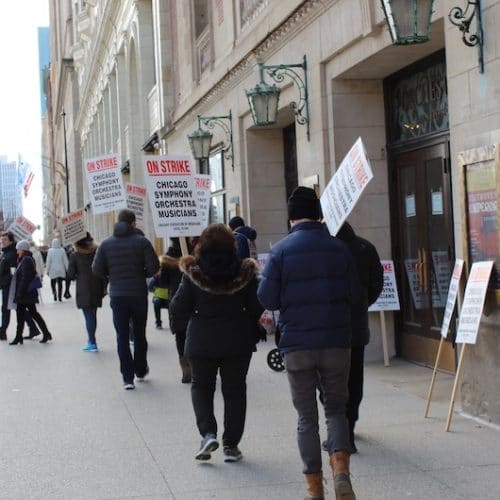
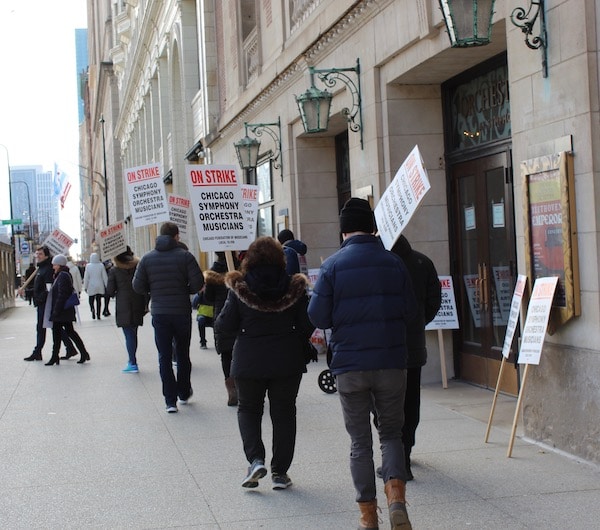
Talks resumed Friday.
Both sides have gone shtum.
That may be a good sign. That’s all we can say at the moment.
Both need to find a way out of the pension deadlock.

There has been a rush to repair the…
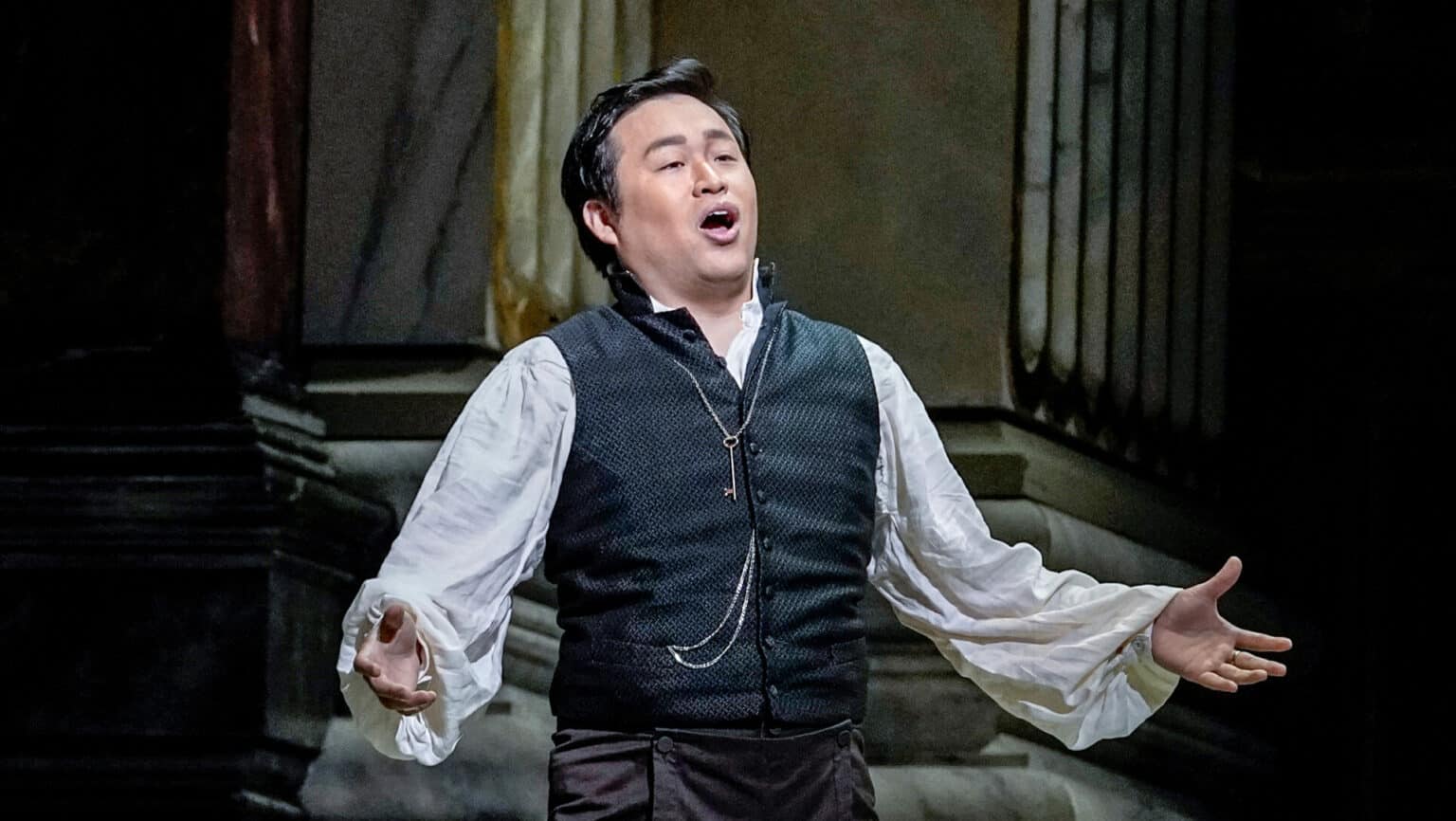
There were protests during Christmas mass at Freiburg…

A tenor who was audibly below par, an…
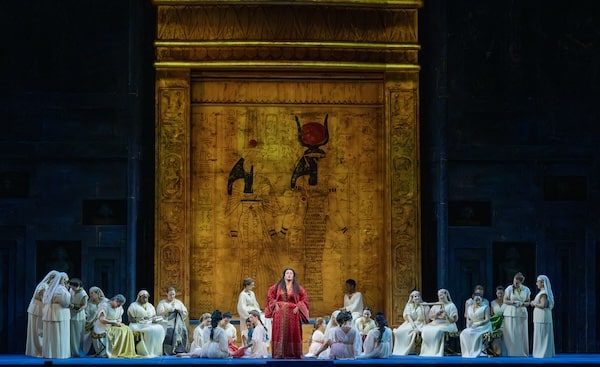
Seasonal ailments are universal. In tonight’s Magic Flute…
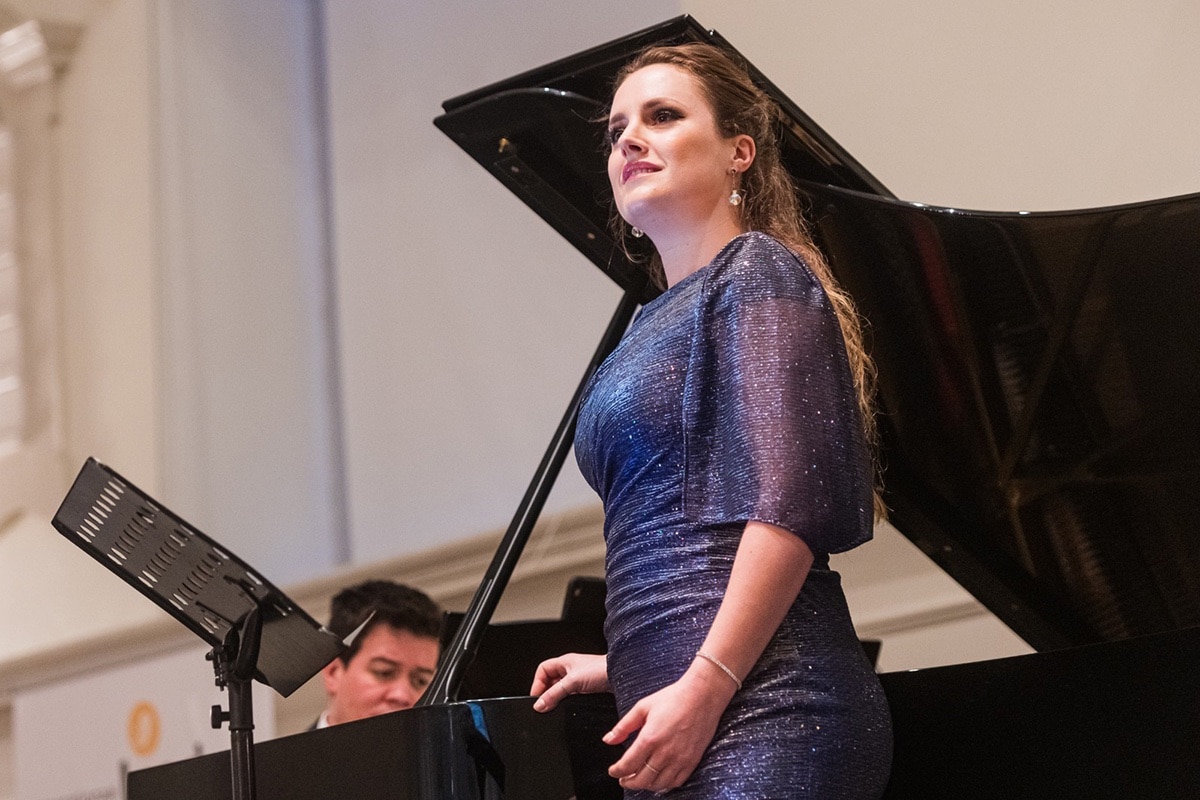
Session expired
Please log in again. The login page will open in a new tab. After logging in you can close it and return to this page.
Both sides will come to a compromise they can both live with for awhile. Both sides will kick what they really want further down the street for a few years, then take it all up again. That’s how the human race bungles along.
Well, this post is less stupid than the last that saw resumption of the talks as a “breakthrough”.
I actually see little movement on either side’s positions.
I have said all along that only when R. Muti takes a stronger position (threatens to walk for instance) will this situation be resolved. He has to do an Osmo.
I don’t share your faith in Muti. His focus appears to be mostly on himself. By cozying up to musicians he played a part in their not striking earlier in the season, when there were some big Muti events on the calendar – opening night, Verdi Requiem, Asia tour, etc. Where has he been the past month while his musicians walked the picket line? I suspect when he gets wind a settlement is imminent he will weigh in with some lofty sounding words about the need for everyone to come together and then take credit for brokering the deal.
Muti already had pre-planned activities after his scheduled Chicago concerts in March (which were unfortunately canceled due to the strike), which included teaching young students about Verdi’s Rigoletto in Tokyo and an upcoming Verdi Requiem in Baden-Baden with the Berlin Philharmonic.
These sort of situations only seem to arise in the USA. From what I have heard the conditions of players in London, even in the best orchestras, are much worse than in those of the USA. I have not notice them to complain, let alone go on strike ( but then they may have a looser structure, which is not conducive for industrial action).
In London at least some of the orchestras – the LSO most notably – are self-governing; a strike would be striking against themselves. Their “worse conditions” are self-imposed.
The London orchestras are self governed and rely much more on ticket sales (hence the conservative programming).
London orchestras are also notorious for low wages and 3 hour services (rather than the standard 2.5 in the US).
What is amazing is the high standard of the London orchestras. In the days when recordings actually made money, London was the preferred city to do recordings as the scale was cheaper and they could produce quality recordings with little or no rehearsal time.
That’s fascinating. I’ve noticed that a lot of that kind of work is now performed by Central European orchestras like the Budapest Philharmonic. No doubt they are even cheaper in “labor costs” and also have a high standard of musicianship.
Sorry, but at some point low wages is going to hurt the quality.
That’s why I think the best of the American orchestras have a really bright future: the LA Philharmonic, Seattle Symphony, and San Francisco Symphony Orchestra all have tons of money and are in rich, growing areas.
Indeed, the business of recording has moved East to many of the orchestras that were formerly behind the Iron Curtain. These recordings can be uneven in my opinion but most are quite good and achieve their purpose (a vanity project for a lesser known soloist, a composer whose music needs to be recorded, or an unknown work by a well known composer).
Naxos has taken advantage of this and it’s not a bad thing as the label has recorded many works that were never recorded because return on investment never made sense. It does now given the cheaper price inputs of labor (musician costs including residuals and technology).
Recording for profit is gone. Record labels do not record classical unless it’s a superstar like Yo Yo or Lang Lang.
Most US orchestras have created their own in-house label to sell recordings (made from live performances).
These recordings are more a way to market the orchestra and are not viewed as an income producing revenue stream.
Well, the US orchestras are usually public and supported by donors, ticket sales (to a much lesser extent) and sometimes by the municipalities. That’s likely why there have been strikes in Chicago, Philadelphia, Pittsburgh, Minneapolis and elsewhere. Plus, the USA does have a healthy tradition of labor strikes. Finally, unlike most of Europe, the central government in the USA does not underwrite these orchestras at all nor do many of the cities they are in (although they usually contribute something to the mix).
I see it as healthy. Look at the country: the USA has lots of very fine orchestras, not only the one in Chicago.
If I had to rate them today it would be:
1) LA Philharmonic (has a lot of money);
2) Seattle Symphony Orchestra (most innovative);
3) Chicago Symphony Orchestra;
4) Boston Symphony Orchestra (great public support);
5) San Francisco Symphony Orchestra (might soon vie for top spot);
6) Minnesota Orchestra (an underrated group of fine musicians);
7) Philadelphia Orchestra;
8) New York Philharmonic (has seen better days);
9) Cleveland Orchestra;
10) Pittsburgh Symphony Orchestra
Note that many of the USA’s top orchestras have had strikes recently and they have usually come out of the situation stronger than before.
Ranking orchestras like you would with a sports league is a fool’s game. You can’t do it.
In the past, it might have been easier to do since the Big Five were so dominant.
But these days most of the major US orchestras can play at a very high level.
I’m constantly amazed at the wonderful recordings being made in Buffalo.
And the catalog of recordings made by Seattle under Schwarz is very impressive.
But we are in the 21st Century and the economic power of the US has shifted to the West Coast. It’s no longer on the East (save for NYC being the financial hub of the globe).
The orchestras in the Rust Belt will be fine as the cost of living is cheaper. They don’t need to pay West Coast salaries to stay competitive.
Being self-governing, the London orchestras set their own salaries. They also choose the conductors and what pieces they will play. In the past the fairly moderate basic pay was improved by the money coming in from recordings (which was huge in the peak). It is how Britain got away with having major orchestras with little subsidy. The low pay will likely be an increasing problem in the future.
talks apparently resumed into saturday, but wasn’t sure if there were any notable updates from the meetings?
In response to commenters who mention the hard conditions of the London Symphony while maintaining high musical standards; Perhaps the efforts of the CSO musicians and other tenacious groups to improve their lot, would serve as an inspiration to orchestral players worldwide, who also play in expensive cities, to know their worth and fight for compensation that reflects the depth of their skills and specialization. Comparing apples to oranges is always fruitless, but it can only be good for the art form to have top jobs that are well compensated and highly respected by dint of their rewards.
You can’t go on strike if you are not an employee.